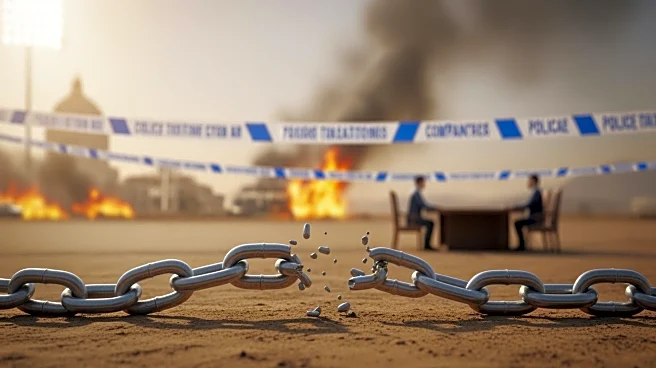What's Happening?
Israel has launched airstrikes in Gaza following the killing of two Israeli soldiers, accusing Hamas of violating the ceasefire. The strikes resulted in at least 18 Palestinian deaths, according to local health authorities. The ceasefire, brokered by
the U.S., is facing its most severe test since its implementation. Israeli Prime Minister Benjamin Netanyahu has ordered a halt to aid into Gaza, citing Hamas' failure to adhere to the ceasefire terms. The Rafah border crossing between Gaza and Egypt remains closed, with its reopening contingent on Hamas fulfilling its obligations, including the return of deceased hostages' bodies.
Why It's Important?
The ceasefire was intended to bring stability to the region and facilitate humanitarian aid to Gaza, which is in dire need. The recent violence threatens to unravel these efforts, potentially leading to a humanitarian crisis. The halt in aid could exacerbate the already critical situation in Gaza, affecting thousands of civilians. The international community, particularly the U.S., has a significant interest in maintaining the ceasefire to prevent further escalation and ensure the flow of humanitarian aid.
What's Next?
Israel has indicated that aid flow might resume following U.S. pressure, with reports suggesting a possible reopening of a crossing into Gaza. However, the situation remains volatile, with both sides accusing each other of ceasefire violations. The international community may need to engage in diplomatic efforts to prevent a complete breakdown of the truce. The ongoing dispute over the return of deceased hostages' bodies remains a contentious issue that could further complicate peace efforts.
















